I love to read. By God’s grace I am a pretty fast reader; I usually read a couple books each week. I find it helpful to summarize my thoughts on each book and I offer those thoughts in the hope that you will be encouraged to either read or pass over the given title.
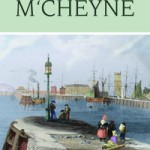 Robert Murray M’Cheyne by Andrew Bonar. I guess every pastor has their favorite, stirring figure from church history. For the longest time I thought Jonathan Edwards was mine. But am beginning to think Mr. M’Cheyne may prove to be the captain of my All-Star Church History team. His good friend Andrew Bonar surely occupies a central place in making M’Cheyene’s life and ministry prominent in evangelicalism. It’s been five years since I last read about the life and ministry of the holy Scotsman, and I am glad I took up once again. The Spirit seems pleased to use M’Cheyne’s passion for holiness and the conversion of souls in uniquely challenging ways. An excellent book!
Robert Murray M’Cheyne by Andrew Bonar. I guess every pastor has their favorite, stirring figure from church history. For the longest time I thought Jonathan Edwards was mine. But am beginning to think Mr. M’Cheyne may prove to be the captain of my All-Star Church History team. His good friend Andrew Bonar surely occupies a central place in making M’Cheyene’s life and ministry prominent in evangelicalism. It’s been five years since I last read about the life and ministry of the holy Scotsman, and I am glad I took up once again. The Spirit seems pleased to use M’Cheyne’s passion for holiness and the conversion of souls in uniquely challenging ways. An excellent book!
 God’s Polished Arrow: W.C. Burns; Revival Preacherby Michael McMullen. I came across this book in a footnote in David Beaty’s An All-Surpassing Fellowship. Burns was the 24-year-old preacher M’Cheyne called on to occupy his pulpit during the exploratory to Israel. Said to have have a stronger voice than even Spurgeon, God reigned revival down on M’Cheyne’s congregation through Burns. Eventually Burns became a missionary to China and was a close friend of Hudson Taylor. His is a fascinating life forgotten to history. McMullen must be commended for resurrecting the story of Burns for the 21st century. God’s Polished Arrow includes McMullen’s 130 page biography of Burns as well as journal extracts, letters, and sermon notes.
God’s Polished Arrow: W.C. Burns; Revival Preacherby Michael McMullen. I came across this book in a footnote in David Beaty’s An All-Surpassing Fellowship. Burns was the 24-year-old preacher M’Cheyne called on to occupy his pulpit during the exploratory to Israel. Said to have have a stronger voice than even Spurgeon, God reigned revival down on M’Cheyne’s congregation through Burns. Eventually Burns became a missionary to China and was a close friend of Hudson Taylor. His is a fascinating life forgotten to history. McMullen must be commended for resurrecting the story of Burns for the 21st century. God’s Polished Arrow includes McMullen’s 130 page biography of Burns as well as journal extracts, letters, and sermon notes.
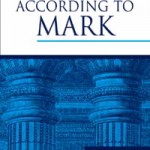 The Gospel According to Mark by James Edwards. Lord willing, tomorrow night we finish up a sermon series on Mark at IDC and while I consulted many different commentaries throughout, I only read a few cover to cover. Edwards’ work in the Pillar series was, by far and away, my favorite resource. His work with original sources and languages is appropriately done; his application pointed, and at times, masterful; and his conclusions sound. If you are preaching through Mark and don’t have this one, buy a copy today. If you plan to preach through Mark in the near future, make sure this work occupies a prominent place during your series.
The Gospel According to Mark by James Edwards. Lord willing, tomorrow night we finish up a sermon series on Mark at IDC and while I consulted many different commentaries throughout, I only read a few cover to cover. Edwards’ work in the Pillar series was, by far and away, my favorite resource. His work with original sources and languages is appropriately done; his application pointed, and at times, masterful; and his conclusions sound. If you are preaching through Mark and don’t have this one, buy a copy today. If you plan to preach through Mark in the near future, make sure this work occupies a prominent place during your series.
Here are the other resources on Mark I read in their entirety:
- The Expositor’s Bible Commentary: Mark by Wessel and Strauss. A lucid commentary that doesn’t unnecessarily belabor points. Solid on application as well, especially in the earlier chapters of Mark.
- Let’s Study Mark by Sinclair Ferguson. If Ferguson has published a work on the particular book I am preaching through I will always get it. Like all the volumes in the Let’s Study Series, this one is pithy and pointed.
- Mark by RC Sproul. Like Ferguson, if Sproul has a book on it, I will buy it. He is particularly strong on historical context and etymology. For a homiletical commentary, it’s lacking in application and implication.
- Expository Thoughts on Mark by JC Ryle. Not as good as his Thoughts on John, but his comments are welcome in their warm brevity.
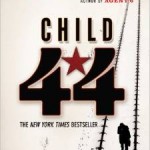 Child 44 by Tom Rob Smith. What a book! The pages turn quite rapidly in this thriller set in the Soviet Union of the 1950s. It’s so good that one can hardly believe this is Smith’s first offering as a published author. It’s the first of a trilogy involving a Russian security officer named Leo Demidov, a man growing increasingly disenfranchised with the Stalinist machine of which he is a part. When he uncovers a series of serial murders he is forced out of his job and left, only with the aid his wife, uncover the truth behind the murder – a crime not even recognized in the Soviet motherland. Eventually the reader finds how who the killer is, but a delightful game of, “Why did he do it ensues?” Sometimes the “why did he do it” is more enjoyable than the “who did it” twist. Read for the thrills and let the historical portrait of Cold War Russia sweep you away.
Child 44 by Tom Rob Smith. What a book! The pages turn quite rapidly in this thriller set in the Soviet Union of the 1950s. It’s so good that one can hardly believe this is Smith’s first offering as a published author. It’s the first of a trilogy involving a Russian security officer named Leo Demidov, a man growing increasingly disenfranchised with the Stalinist machine of which he is a part. When he uncovers a series of serial murders he is forced out of his job and left, only with the aid his wife, uncover the truth behind the murder – a crime not even recognized in the Soviet motherland. Eventually the reader finds how who the killer is, but a delightful game of, “Why did he do it ensues?” Sometimes the “why did he do it” is more enjoyable than the “who did it” twist. Read for the thrills and let the historical portrait of Cold War Russia sweep you away.
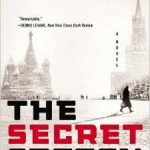 The Secret Speech by Tom Rob Smith. While not as enthralling as Child 44, the second book in Smith’s Russia trilogy is still a moving portrait of the fear and personal angst that so many experienced in the Cold War Soviet states. I was delighted to find Khrushchev famous “Secret Speech” play such a pivotal – and titular – role. The reader is swept all way from Moscow, to Siberian gulags, and then to the Hungarian Revolution of 1956. These books aren’t properly “historical fiction,” but they sure would fit the bill. I didn’t find the antagonist terribly believable, but the emotional angst of Demidov’s adopted daughter seeking his life is oh so compelling. On to book three . . .
The Secret Speech by Tom Rob Smith. While not as enthralling as Child 44, the second book in Smith’s Russia trilogy is still a moving portrait of the fear and personal angst that so many experienced in the Cold War Soviet states. I was delighted to find Khrushchev famous “Secret Speech” play such a pivotal – and titular – role. The reader is swept all way from Moscow, to Siberian gulags, and then to the Hungarian Revolution of 1956. These books aren’t properly “historical fiction,” but they sure would fit the bill. I didn’t find the antagonist terribly believable, but the emotional angst of Demidov’s adopted daughter seeking his life is oh so compelling. On to book three . . .
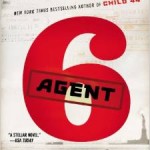 Agent 6 by Tom Rob Smith. You have to give Mr. Smith some credit with this trilogy for his doesn’t fall into predictability or conformity. No two books are alike. Agent 6 beautifully highlights his dexterity. One day in New York City consumed the book’s first half, then the next two scenes jump the reader in time across 15 years and millions of miles as the Afghanistan replaces the US. The Soviet invasion of Afghanistan thus becomes the perfect backdrop on which Demidov’s depression and pain can boil over. The book’s ending left, at least for me, much to be desired as the truth lurking in the shadows was apparent early on. Thus, the “reveal” was less than revelatory. The Demidov books are a fantastically enjoyable series all around, and thankfully are free from the “salacious”. Excellent read.
Agent 6 by Tom Rob Smith. You have to give Mr. Smith some credit with this trilogy for his doesn’t fall into predictability or conformity. No two books are alike. Agent 6 beautifully highlights his dexterity. One day in New York City consumed the book’s first half, then the next two scenes jump the reader in time across 15 years and millions of miles as the Afghanistan replaces the US. The Soviet invasion of Afghanistan thus becomes the perfect backdrop on which Demidov’s depression and pain can boil over. The book’s ending left, at least for me, much to be desired as the truth lurking in the shadows was apparent early on. Thus, the “reveal” was less than revelatory. The Demidov books are a fantastically enjoyable series all around, and thankfully are free from the “salacious”. Excellent read.
Click here to find other entries in the Recent Reads series.
